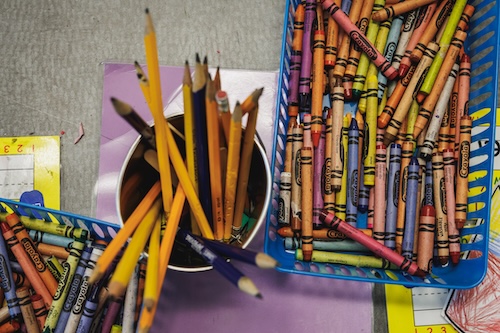
Declining student scores over the past year in reading, math, and civics on the Nation’s Report Card have confirmed a sobering truth that was already widely assumed by the public at large: students, already in need of extra academic support pre-pandemic, have fallen even further behind.
You wouldn’t know it, though, if you asked parents about their own child. Despite only about a third of the country’s students reading on grade level, 92% of parents believe their own child is doing so. That math, of course, doesn’t add up.
So, what’s the source of this disconnect? In some cases, it may be that teachers aren’t telling parents and guardians how their child is doing. A recent survey of 1,000 teachers across the country found that only 38% of teachers had received the training needed to effectively leverage student assessment data, and fewer than two-thirds report using assessment data to inform families of their students’ progress. Those two things, of course, go hand-in-hand: communicating about assessment data is challenging if you haven’t been trained how to do so.
Parents and other caregivers deserve transparency in their children’s learning, and their tendency to underestimate their students’ gaps makes it critical that teachers leverage objective measures of student learning in conversation with families. As two teachers with more than a decade of experience each, we’ve learned some strategies for doing so and have identified areas for leaders to lean in to help as well.
1. Avoid assumptions
In our schools, we often hear the assumption that parents and guardians don’t and can’t understand assessments. The terms are too jargony, or the scores too complex, or the language or cultural barriers too wide, and so we avoid the conversation altogether.
We agree that we must be mindful of these challenges in communicating with families about their students’ progress, but they should never be used as an excuse to not explain student academic progress. We shouldn’t assume that adults can’t understand, and we should always dig deeper in conversations with them to identify where gaps in their understanding do exist and work with them to close them.
2. Give families the tools and context they need
In the same way we scaffold learning for our students, we can scaffold for their adults by helping them understand the different types of assessments, what each one is designed to measure and, ultimately, what they tell us about their student’s academic progress.
When families struggle to understand their child’s assessment results, we can share examples of texts a student should be able to read at their grade level and compare them to texts the student is currently reading. We must also educate parents and other caregivers on what questions they should be asking in every interaction with their child’s teacher, like “Where is my child academically compared to where they are supposed to be?”
While teachers should play a role in sharing this information with families, it is also the responsibility of the district and school leaders to provide educators the training they need to do this well. And districts must create opportunities for adults to attend workshops to learn about assessments and what they can tell us, as well as how to be savvy about how they market and communicate these opportunities to families to ensure wide reach.
3. Communicate challenges transparently up front
It is human nature to want to avoid telling a parent or other caregiver that their child is struggling. But, when we sugarcoat this information or offer “compliment sandwiches” to soften the blow, we deprive guardians of the ability to learn and execute the steps needed to help them improve. Of course, we should be compassionate when talking to families, but we should also be direct.
Most adults believe their child is reading on grade level because they have been promoted to that grade, sometimes based on report card grades that did not accurately portray their abilities. Particularly in states that require passing grades on assessments to graduate, we cannot wait and let the final exam be the way families learn their child is behind. We must talk to them early and often about their students’ progress, offering them the opportunity to be a first-hand participant in their child’s learning journey.






